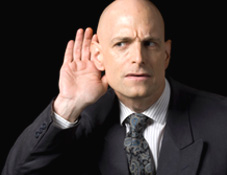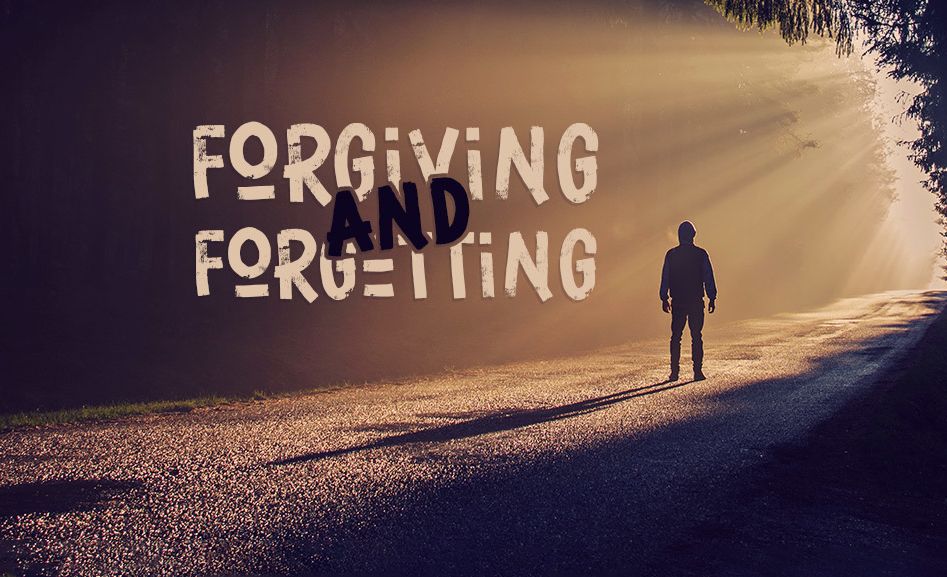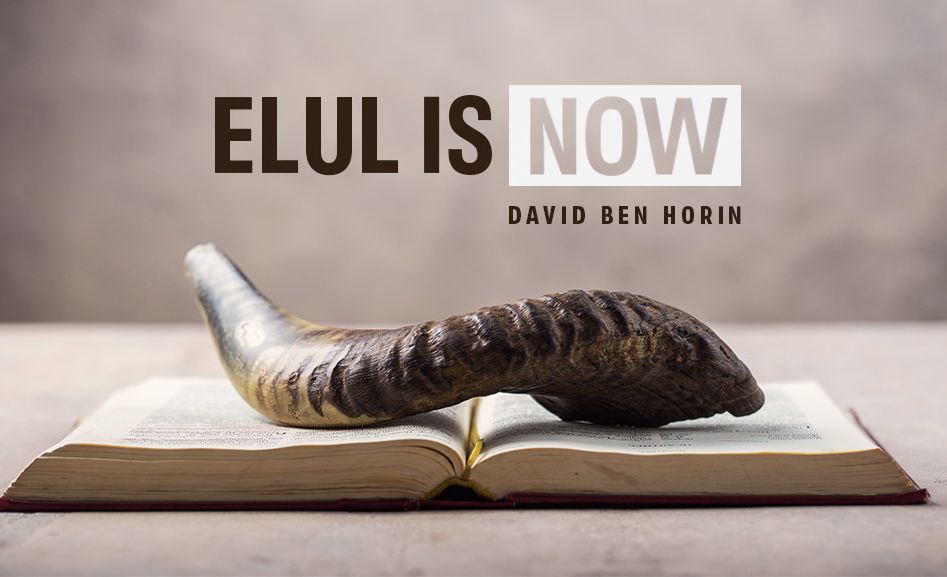
An Ear for Teshuva
An angry secular Jew who thinks that the religious are always imposing their will on other people asks all his stickiest questions to Rabbi Pinchas Winston…

When I was young, I had a dog. He was a Miniature Schnauzer, who never grew higher than 18 inches off the ground. One day I took him to the park and removed his leash to give him some long desired running room. No sooner was the leash off my dog than he ran like the wind away from me, across the huge park.
I was delighted to see him enjoy his freedom, until a massive dog, about four times his size, casually strolled across the same park. I expected my dog to put his tail between his legs and high-tail it back to me. However, instead, he ran right for the big dog, which could have consumed my dog for breakfast.
In astonishment, I watched my dog first sniff noses with the big dog, and then if you can believe it, stand up and put his paws on the big dog’s head. I don’t remember what I thought then, but, it was probably along the lines of, “Okay, what kind of dog would I like to get next?” because, I thought this dog would make cat food out of my mine.
Instead, though, this big brute of dog, having no patience for a Miniature Schnauzer’s antics, simply flung his big head down and up, and, it was enough to toss my dog on his side for a roll in the grass. As my dog recovered himself and prepared for a new run at this dog, I frantically called for my dog and chased after him with my leash. I didn’t catch him, but it was enough to force him in a different direction, away from the bigger dog.
Now, some twenty-five years later, I wonder if that story is, in fact, a good analogy for the Jewish people, who seem to have more self-confidence than is good for us. We seem to have no problem having more belief in the incomplete, and often mistaken, philosophies of man, than in the possibility that G-d is REALLY there, and, that His Torah is REALLY true.
Is it stiff-neckedness?
Take on G-d? Is it chutzpah?
When all He has to do His shake His head, so to speak, and send us flying in all directions? Is it sheer stupidity?
Imagine the following dialogue:
Angry Secular Person (ASP): I hate religious Jews!
Rabbi: Wow, that’s a strong statement! Why do you feel so strongly?
ASP: Because, they’re always imposing their ways on others, and they think that anyone who is not as religious as them is not as Jewish as them!
Rabbi: That’s not quite accurate. They will be the first to tell you that anyone born from a Jewish mother is as “Jewish” as the next person who is born from a Jewish mother, or, who has converted according to halachah, for that matter. I think what you mean is that they consider a person who does not practice Torah “less observant.”
ASP: Whatever! It still amounts to the same thing They look down on others, and they want every Jew to be like them and, they make a big deal and interfere politically if we’re not. They’re holding us back from being like the rest of the world in this modern era!
Rabbi: Do you think for one second that they would do any of that if they didn’t believe that Torah applies to ALL Jews, and that until ALL Jews uphold Torah, redemption for the world cannot come?
ASP: I don’t care! They can believe in whatever fantasies they want, but they can’t impose their dreams on people like me! What right have they to impose their values on me?!
Rabbi: Because, they believe it’s what G-D wants.
ASP: What do they know about G-d? I’m not even sure He exists, and, even if He does exist, I can’t believe that He thinks too highly of people who can’t even integrate into society. I mean, what value can there be in people who sit around learning all day and dress in black!
Rabbi: I see. So, you think that modern man has all the answers, is the wisest man has ever been, and knows what’s best for the future of the world?
ASP: Well, not all of the answers But look at what we’ve accomplished with technology! We may not have ALL the answers, but, a lot of them far more than people who keep their hands stuck in ancient texts and still believe in myths.
Rabbi: You mean, G-d giving the Torah at Mt. Sinai? You believe that it is only a myth?
ASP: What else can it be, if not a myth?
Rabbi: It can be TRUE. Why do you insist that it is a myth?
ASP: Because, there is no archeological evidence to support the claim
Rabbi: Yet. There is no archeological evidence YET. And, even that is not necessarily true. Anyhow, what is lacking archeologically can be made up for from other areas of thought. Would you like to discuss some of those?
ASP: Yea, well, if they’re right, how come so few people follow their ways?
 Rabbi: What do you mean? The world’s biggest religions are based upon the Torah being true, and, even the American Constitution is based upon many Torah ideas.
Rabbi: What do you mean? The world’s biggest religions are based upon the Torah being true, and, even the American Constitution is based upon many Torah ideas.ASP: Well, what about the Holocaust?
Rabbi: There is an answer for that as well. The answers existed in the Torah and its commentaries long before the Holocaust ever occurred. I can’t tell you why the Holocaust happened when it did and where it did, and why this person died while this person survived. But, the general rules that govern this universe and our history are laid down in detail. We know a little about the cause-and-effect relationship in history. You want to learn what we know and understand it?
ASP: So, what’s wrong with technology?
Rabbi: What do you mean?
ASP: Why can’t Orthodox Jews use technology, and get involved in the business world?
Rabbi: Well, many do. But think about it for a moment. Imagine for a second that G-d is really there, and, He really gave the Torah. Let’s say the Torah contains the axioms of creation, and, that G-d has told us that He values its study above and beyond anything else. Let’s even say that the learning of it in detail is so exhilarating, even more than a good novel that you can’t put it down
ASP: I learned a little bit of the Bible I didn’t find it exciting at all!
Rabbi: Did you learn the Jewish version? Did you learn it with Rashi and the Ramban?
ASP: Who?
Rabbi: Famous Torah commentators. Did you ever learn Talmud with Rishonim? Did you ever taste the sweetness of Kabbalah? Did you even meditate on the profundity of the words of the Zohar?
ASP: Ah, well, of course not. It’s not for me. I have a wife and family to support. I have to be a responsible member of society.
Rabbi: Of course you do. The Torah says so. And, the Torah tells you how to do it. You know, societies come and go. What was right in one secular society becomes wrong in the next. Torah is timeless. It is the undercurrent to history, it runs through history, and, it rises above it. Could it be that those people whose backwardness you hate are just living in a different realm, sailing the undertow of history? Could they know something you have yet to learn, and, because you have yet to learn it, you have difficulty relating to their way of life?
ASP: I find that hard to believe.
Rabbi: I also did, until I stumbled into Torah Judaism myself.
ASP: You were once like me?
Rabbi: Not only was I once secular, but, I was an ANGRY secular person like you, espousing the same gripe against the Orthodox community. I’m even a Harvard graduate in business administration.
ASP: I don’t believe you. No one walks away from a future like that.
Rabbi: Unless they see something more important to believe in a higher value to pursue.
ASP: I still find it hard to believe that so few people who seem to know so little about this world can be so right, with so little evidence to support their point of view And, if we’re all wrong, then, why doesn’t G-d say something already?
Rabbi: Funny you should ask. Both your questions are answered in one verse from the Torah. In Parshat Nitzavim, the posuk said: G-d, your G-d, will circumcise your heart, and the heart of your descendants, so you may love G-d, your G-d with all your heart, and with all your soul, in order that you may live. (Devarim 30:6). Now, the Hebrew for the words, “your heart and the heart” is: es levavecha v’es l’vav. The Torah commentator, the Ba’al HaTurim, points out that, if you take the first letter of these four words, they spell the word “Elul,” the name of the month that precedes Rosh Hashanah. This, says the Ba’al HaTurim, is an allusion to the need to begin saying Selichot (special prayers and liturgy designed to prepare us for the atmosphere of the Aseret Yemai Teshuvah, the Ten Days of Repentance) early in the morning from Rosh Chodesh Elul on, as the Sephardim indeed do (Ashkenazim begin the week before Rosh Hashanah only). You see, there is something, be it psychological, be it emotion, be it spiritual, that is blocking our clarity of vision. If we take Torah seriously, and look once again in the direction of G-d, and humble ourselves a little bit, then, Torah begins to make more sense to us. This is what the verse, “The corruption: it is not His; the blemish is His children a crooked and twisted generation.” (Devarim 32:5), means. The explanations are all there, well, at least for the most part. We have to stop making assumptions, and start pursuing truth.
ASP: It sounds good in theory. But, there are people harder to reach than me. How are you going to get to THEM?
Rabbi: The Ba’al HaTurim answers that question too. He adds that “es levavecha v’es” has total numerical value of that which is equal to “this is (the period of) the days of Mashiach, in Hebrew, of course.
SP: You really believe all that stuff?
Rabbi: I really believe all that “stuff.” You want to find out why?
Some answer yes, but most answer no, and, as the Ba’al HaTurim points out, it may take Mashiach to tip the scales in the opposite direction. Fortunate is the one with an ear for teshuvah.
***
Pinchas Winston is the author of over 95 books on various topics that deal with current issues from a traditional Jewish perspective. He has also written on the weekly Torah reading since 1993, called “Perceptions,” as well as on current topics and trends affecting Jewish history, past and present. One of his missions is to make the depth and beauty of the more mystical teachings of Torah understandable and accessible to those who can really benefit from them. Visit his website at thirtysix.org.








Tell us what you think!
Thank you for your comment!
It will be published after approval by the Editor.